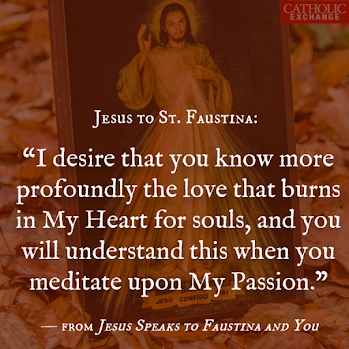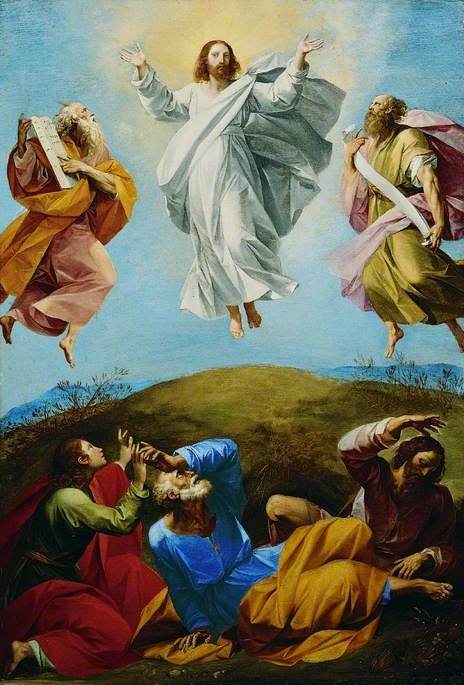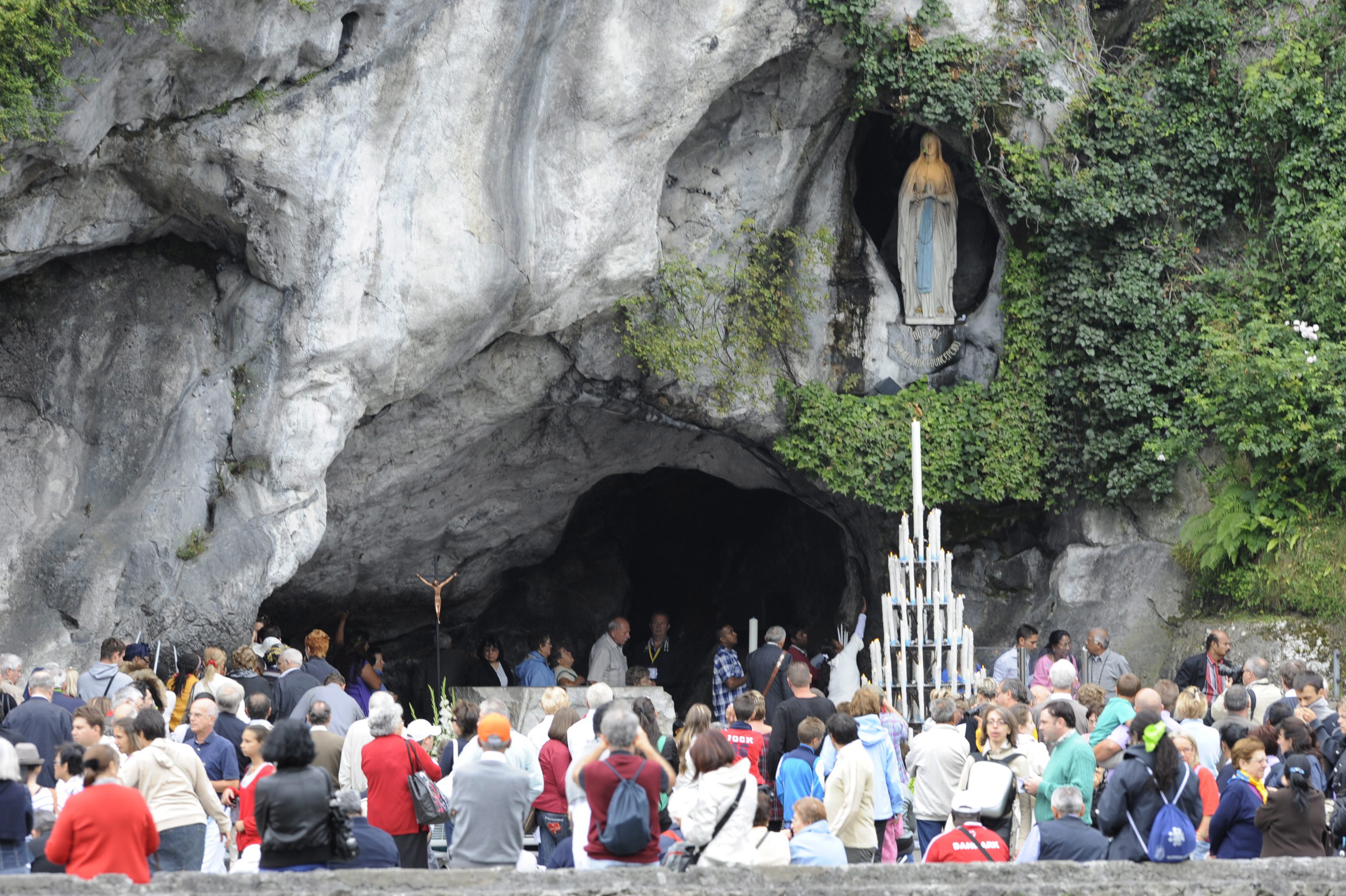Tonight we celebrate the Mass of the Lord’s Supper, the day when Jesus instituted the Most Holy Eucharist and the Sacred Priesthood. We commemorate the beginning of a love affair between God and man found in Holy Communion. Bishop Fulton Sheen wrote, “The greatest love story of all time is contained in a tiny white Host.” Pope Saint John Paul II said, “The Eucharist is that love that surpasses all loves in heaven and on earth.” Our Lord said, “There is no Greater love than this, that a man lay down his life for his friends.” Would you lay down your life for Jesus in the Eucharist? Would you risk your life to attend Mass, to receive Jesus in Holy Communion?
Matthew, one of the Apostles, was martyred while offering Mass. He was killed by the sword in 74 AD, when offering Mass in Ethiopia.
The early Christians risked their life to attend Mass and receive Holy Communion. For nearly 300 years there were no churches. Masses were offered in private homes, called “house churches”. They were also offered in the catacombs in hidden underground rooms.
Have you any idea what Rome was like at the beginning of the first century? The Romans were the most powerful people in the world because they conquered and ruled over many nations which, together, were known as the Roman Empire. The Roman rulers and their soldiers were very cruel, and were very much feared both by their own people and the people of other nations.
In the year 265, when Tarcisius was 12 yrs old, the empire was ruled over by Emperor Valerian. The emperor hated Christians because of their love for Jesus and his teaching. They were thrown into dirty prisons where conditions were poor, and many of them were martyred which means they were put to death for their beliefs.
Christians were martyred by beaten to death, others were burned- and most cruel of all- a number of them were thrown into a big arena called the Coliseum (which still exists today) and were eaten by lions. This was like a sport to the emperor and his friends who watched this horrible cruelty for enjoyment. However, Christians endured all of this, rather than give up their faith in Jesus.
To avoid being captured, Christians met secretly in their homes if they wanted to pray and to learn about their faith. When the situation became too dangerous they built underground rooms and passages called catacombs, so they could come together in safety. To enable them to celebrate Holy Mass in secret, they had to build large rooms below ground called crypts where they also buried their dead.
The entrances to the catacombs were concealed and they were usually in isolated spots outside the city known only to the Christians. These same catacombs still exist today and can be seen by visitors to Rome.
It was there they gathered to pray, to study their faith and to hear Mass and receive Holy Communion. This was possible due to the courageous bishops and priests who risked their lives so that the people could receive the Body and Blood of Jesus in the Eucharist. No matter how careful the Christians were in protecting the knowledge of the entrances to the catacombs, sometimes the pagans discovered them. Therefore, a great number of Christians were caught or put in prison, where, each day, they expected to be put to death. Despite their sufferings they desired to receive Jesus in the Eucharist.
One day, just as the Bishop was about to celebrate Holy Mass in one of the catacombs, he received a letter from the prisoners- among the prisoners were some of his fellow bishops and priests-, who had been arrested requesting him to please send Holy Communion to them. They knew if Jesus was with them, they would be less fearful and would gladly accept a martyr's death for love of Him. This posed a problem for the Bishop because knew it was very dangerous to take the Holy Eucharist to prisoners and to the sick.
Before beginning Holy Mass, the Bishop asked those present to pray that he might choose the best person to carry Jesus in the Eucharist to the prisoners. Since it was too dangerous for priests, it was important that some other good person be selected who would not arouse suspicion.
As soon as Mass was over, the Bishop asked who would be willing to carry out this brave task. A young boy, Tarcisius, an altar server- stood up and said, “send me.” The Bishop thought the boy was too young and could be endangered, but Tarcisius convinced him that nobody would suspect him simply because he was so young. All the Christians knew of the deep love Tarcisius had for Jesus in the Eucharist, so the bishop eventually accepted the boy's offer.
Tarcisius was given some hosts carefully wrapped in a linen cloth and wrapped in his tunic over his heart. The Bishop asked him to remember the “heavenly treasures” that were being entrusted to his care; to avoid the crowded streets and to faithfully and safely protect these sacred mysteries, Jesus in the Eucharist. Tarcisius replied that he would rather die than let go of them. Clasping his Sacred Treasure, he set off for the prison.
Oh how happy and proud Tarcisius felt as he carried Our Blessed Lord in the Eucharist so close to his heart! He had no thoughts to spare for places or people that he passed. He thought only of Jesus, whom he carried.
“Oh, dear Jesus, how I love you,” he whispered. “How good you are to choose me as your little messenger. How willingly I would suffer and die for you, like these good people in prison. Perhaps one day you will let me lay down my life for you too.”
Whispering words of love like these, he sped quickly on his way. He was out of the catacombs now and on the high road. There he passed a group of his classmates about to start a game, but needing one more to complete the number to make up the team. Catching sight of Tarcisius they called him to stop and join them.
“I am sorry,” he said, “but I am on an important mission.” He hurried on, but the boys caught hold of him and would not let him go.
“What have you there?” said one, seeing how tightly Tarcisius held his hands to his breast. “Let me see.”
“No, no,” cried Tarcisius, struggling to free himself. His anxiety made them all curious, and together they tried to pull away his hands.
“My Jesus, strengthen me,” whispered Tarcisius. But one boy heard his words and cried out to the others: “He is a Christian. He is hiding some Christian mystery there.”
This made the boys still more curious. They determined to see for themselves, so they struck him, stoned him and kicked him and did their best to pull open his hands, but they could not make him loosen his grip.
A man passing by asked what was the matter. One of the boys said, “He's a Christian, carrying some Christian mystery, and we're trying to get it from him.” The man said, “A Christian, did you say?” and giving Tarcisius a cruel blow, threw him to the ground.
At this very moment, a soldier, hastening towards the group, scattered them, and stooping down, lifted Tarcisius in his arms. “You cowards!” he said; “all of you attacking one little boy.” He went quickly down the street and hurried off carrying the boy. The soldier said, “Tarcisius, young man.” Tarcisius opened his eyes and recognized the soldier as a Christian he had often met in the catacombs.
“I am dying,” he said, “but I have kept my God safe from them.” And he handed his precious treasure to the soldier, who placed it reverently inside his tunic. “Carry Him to the prison for me,” said Tarcisius and with a gentle sigh he fell back into the soldier's arms and died. His little soul was already with God, for whom he so willingly gave his life, for Jesus himself once said, “Greater love than this no man has, than that a man lay down his life for his friend.” Little Tarcisius gave his life for the Friend of friends, Jesus.
Non-Catholics claim the Eucharist is a symbol, but the early Christians would have never died for a mere symbol, but they would die for a person, Jesus Christ truly present in the Holy Eucharist.











